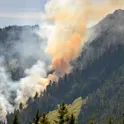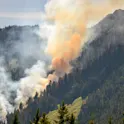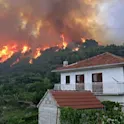
Environment
09 Nov 2023
Forests with multiple tree species are 70% more effective as carbon sinks than monoculture forests
by Deborah Pirchner, Frontiers science writer Image: Shutterstock.com Forests are excellent at absorbing and storing carbon and can play a role in meeting global net zero targets. As more countries commit to forest creation, but mainly plant single species forests, an international team of researchers has examined how carbon stocks in mixed forests and monocultures compare. They found that mixed forests store more carbon, and that out of the forests assessed those with four species had the highest carbon stocks relative to monocultures. To slow the effects of climate change, conserve biodiversity, and meet the sustainable development goals, replanting trees is vital. Restored forests store carbon within the forest’s soil, shrubs, and trees. Mixed forests are especially effective at carbon storage, as different species with complementary traits can increase overall carbon storage. Compared to single-species forests, mixed forests are also more resilient to pests, diseases, and climatic disturbances, which increases their long-term carbon storage potential. The delivery of other ecosystem services is also greater in mixed species forests, and they support higher levels of biodiversity. Although the benefits of diverse forest systems are well known, many countries’ restoration commitments are focused on establishing monoculture plantations. Given this practice, an international […]




